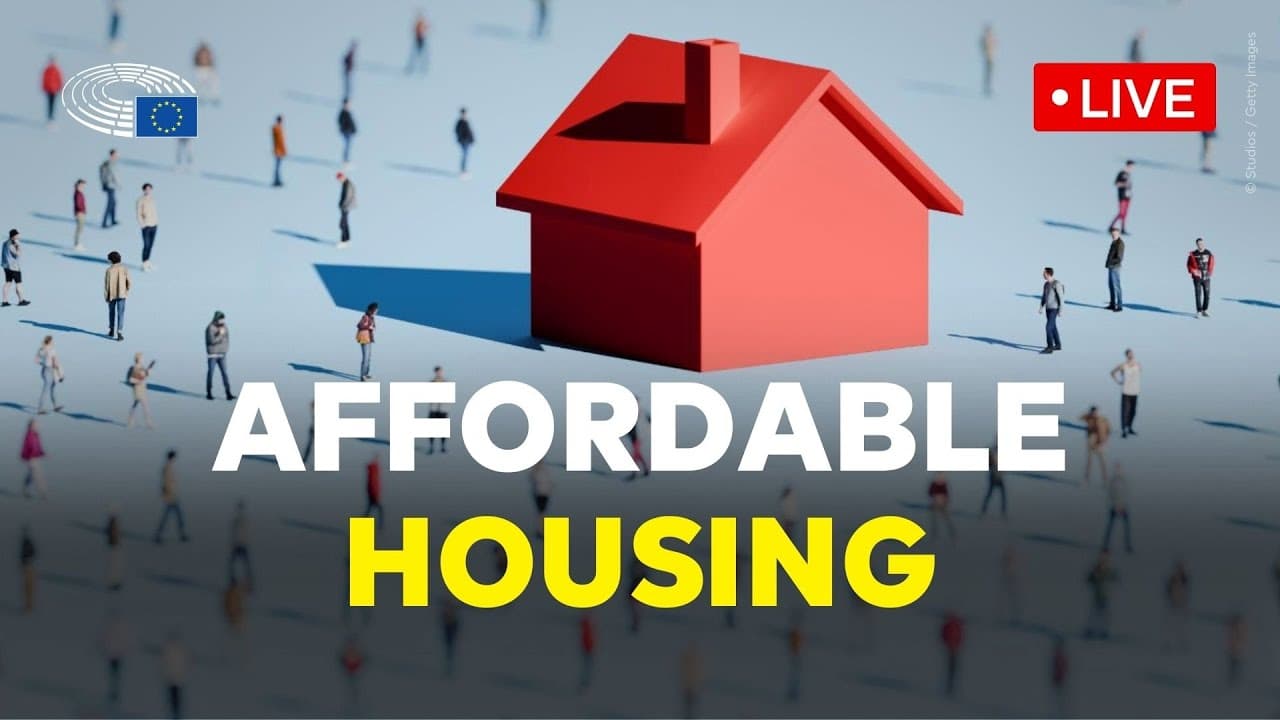AI-Generated Summary
Learn moreContext
The item "How to solve Europe's housing crisis" was published by the European Parliament, featuring a live-streamed debate addressing the pressing housing crisis across the European Union. The event was opened by key figures including MEP Irene Tinagli and European Commissioner Dan Jørgensen, highlighting the urgent need for collaborative solutions to rising housing costs and the challenges faced by citizens regarding home affordability.
Housing Crisis Overview
Rising housing prices and rents are significant concerns for many Europeans, leading to increased social and economic inequality. The European Parliament and European Commission engaged in a discussion on the root causes of the crisis and potential measures at both national and EU levels. The event focused on how high housing costs limit labor mobility and create barriers for lower-income households, exacerbating existing disparities and hindering economic growth.
Key Statistics
In 2023, approximately 1 in 10 Europeans spent over 40% of their disposable income on housing and related costs. Alarmingly, around 400,000 children in Europe were reported to be homeless, living on the streets or in temporary accommodations. Moreover, 47 million people in the EU struggled to afford heating during the same year, showcasing the severity of the housing crisis.
Causes of the Crisis
The crisis stems from multiple intertwined factors, such as increased demand from tourism and labor mobility, which strains available housing supply. The shift in residential real estate into mere investment assets has resulted in limited housing stock, particularly in urban areas. This imbalance between supply and demand has led to soaring prices and a lack of affordable rental options.
Solutions and Initiatives
The European Parliament has established a special committee to assess housing needs and the impact of speculation while examining existing funding tools like the recovery and resilience facility. The European Investment Bank is also expanding financing options for sustainable housing projects to address the crisis effectively.
Collaborative Efforts
The event emphasized the importance of collaboration among various stakeholders, including local governments, housing providers, tenant associations, and civil society. A comprehensive approach involving all voices is essential to create effective housing solutions that can restore the social fabric of communities.
Legislative Framework
To tackle the housing crisis, the European institutions are urged to optimize regulatory tools to restore market balance. A dedicated housing task force has been created to facilitate dialogue and develop actionable recommendations for member states, focusing on sustainable and affordable housing solutions.
Future Directions
Looking ahead, the European Parliament aims to prioritize the establishment of an affordable housing plan that aligns with the needs of citizens, particularly vulnerable groups. The discussion highlighted the necessity for immediate and actionable policies to ensure that housing remains a fundamental right for all Europeans, reinforcing the importance of stability and security in the housing market. In summary, the debate around Europe’s housing crisis highlighted both the urgency and complexity of the issue, emphasizing the need for a coordinated effort among EU institutions, member states, and local authorities to develop sustainable housing solutions that are accessible to all citizens.
